Singapore votes but will anything change?
Singapore heads to the polls on Friday, and although the incumbent People's Action Party (PAP) is widely expected to retain its more than 50-year grip on power, it's the most competitive election in the city-state's history.
For the first time since its independence from Britain in 1965, Singapore's main parties are competing for voter sentiment in all 89 seats being contested across the country's 29 electoral divisions.
It's been a frantic start to the month; under election rules, candidates have only nine days in which they are legally allowed to campaign.
The PAP's fading grip on power
Singapore's present Prime Minister, Lee Hsien Loong, has been in power since 2004 and as leader of the incumbent PAP party and the eldest son of Singapore's founding father, he is likely to remain in the role.
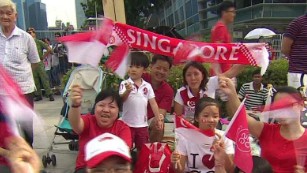
Singapore celebrates 50 years of independence
But while Singapore's block voting electoral system and the PAP's enduring popularity all but guarantee his success, Lee faces many challenges.
Singapore's last election in September 2011 saw his ruling PAP party returned with just 60% of the vote, its worst ever electoral performance. Eugene Tan, a political analyst and associate professor of law at Singapore Management University,said that as the PAP's grip on power wavers, this election is very much about the future of Singapore's political system.
"I think Singaporeans appreciate the good governance that has come from the ruling People's Action Party being in charge for the last 56 years, but I think they are also concerned about the vulnerabilities that come with a one party dominant system," he said.
An opposition growing in experience and confidence
The 2011 election result gave Singapore's opposition parties a foothold in parliament and many opposition parties have since grown in confidence, as well as popularity among voters.
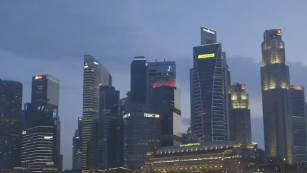
Is there a darker side to Singapore's success?
"Gone are the days of the 1990s where opposition parties would allow the government to be returned on nomination day unchallenged," said Jason Lim, a Southeast Asian historian at the University of Woollongong in Australia and ex-Singaporean civil servant. "People no longer accept the legitimacy of the PAP as gospel truth any more," he added.
Tan said the opposition's experience was a case of "success begetting further success."
"The inroads the opposition made in the last general election demonstrate that Singaporean voters are prepared to give opposition parties a fair hearing, which has enabled them to recruit more, better experienced members and candidates," he said.
Growing voter dissatisfaction
Dissatisfaction among Singapore's residents is also growing, and a number of the issues that contributed to the PAP's poor performance in 2011, including the nation's high cost of living and levels of immigration, remain of concern to voters today.
A survey by local research firm Blackbox shows the "overall government satisfaction index" among residents is just 42% for the cost of living, 53% for housing affordability 53% and 57% for public transport.
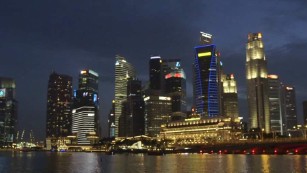
Lee Kuan Yew: The man behind Singapore's success
Singapore's economy has also begun to stagnate. A survey released this monthshows economists now expect the economy to grow 2.2% in 2005, below previous predictions of 2 to 4%, making Singapore's economic health another key issue heading into the election.
But Tan said that as important as these concerns may be, the shape of Singapore's political future is paramount for voters at this election.
"I think the key issue for voters that overarches some of the hot-button issues like immigration, cost of living, housing affordability, retirement adequacy and the public infrastructure crunch, really is the question of how Singapore's political system should evolve," he said.
The power of social media
The PAP has historically kept an iron-clad grip on dissent among the local, mainstream news outlets in Singapore, but social media has opened new channels for discussion of political issues among the opposition and voters.
Tan noted that Singapore's electorate was changing rapidly, and with close to 60% of residents now born after British independence, social media was far more important today than it was in previous elections.
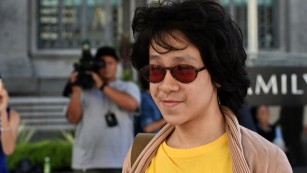
Lim said that social media had completely changed the election landscape in Singapore. He noted that while the opposition had skillfully used it to its advantage, the PAP had been more concerned with containing its influence,attempting to silence bloggers and shut down opposition websites.
"Media regulation worked for the PAP in the past when the print and broadcast media were all there is but social media is much harder to regulate, and it would be better if the government engaged with people involved on social media rather than clamp down on everything," said Lim.
Lee Kuan Yew's legacy
Despite these fundamental changes, the death of the country's first Prime Minister, Lee Kuan Yew, has been one of the most significant issues for Singapore this election.
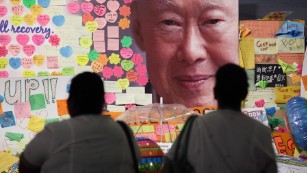
Singapore's founding father dead
Lee's pro-business, anti-corruption approach to government helped transform Singapore into the wealthy financial hub it is today.
And although his government maintained an iron clad grip over freedom of speech, the PAP has been using his legacy as a key platform for re-election. It's something that may work for the PAP this election, but not necessarily in the future.
"The PAP is trying to build up Lee Kuan Yew's legacy but as the years go by there will be a generation of Singaporeans who grow up with absolutely no idea of who Lee Kuan Yew was, apart from the information in their history text books," Lim said.
News Courtesy: www.cnn.com











